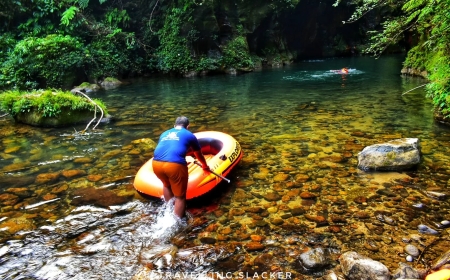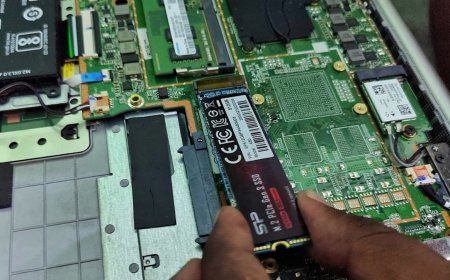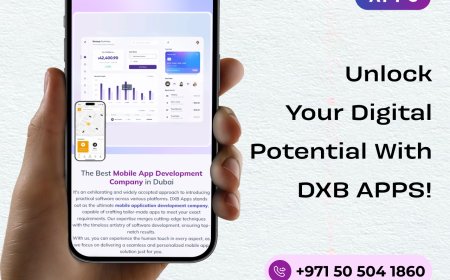How to Find Oakland Trumpet Avant-Garde Band Band Band Tonguing Lessons
How to Find Oakland Trumpet Avant-Garde Band Band Band Tonguing Lessons Discovering specialized music instruction—particularly in niche genres like avant-garde trumpet performance—is a journey that blends curiosity, persistence, and deep cultural awareness. In the vibrant, experimental music scene of Oakland, California, a small but influential community of musicians has cultivated a unique approa
How to Find Oakland Trumpet Avant-Garde Band Band Band Tonguing Lessons
Discovering specialized music instruction—particularly in niche genres like avant-garde trumpet performance—is a journey that blends curiosity, persistence, and deep cultural awareness. In the vibrant, experimental music scene of Oakland, California, a small but influential community of musicians has cultivated a unique approach to trumpet playing that defies convention. At the heart of this movement lies a technique known as “tonguing,” not merely as a mechanical articulation method, but as a sonic sculpting tool—used to produce staccato bursts, multiphonics, flutter-tonguing, and percussive attacks that challenge the boundaries of traditional jazz and classical trumpet performance.
The phrase “Oakland Trumpet Avant-Garde Band Band Band Tonguing Lessons” may appear repetitive or even nonsensical at first glance. But this repetition is intentional—it mirrors the rhythmic, layered, and often cyclical nature of avant-garde composition itself. The “Band Band Band” is not a typo; it’s a nod to the overlapping collectives, rotating ensembles, and improvisational collectives that define Oakland’s underground scene. These groups often operate without formal names, relying on word-of-mouth, underground flyers, and late-night jam sessions to connect. Finding lessons in this context requires more than a Google search—it demands immersion in the culture.
This guide is designed for musicians, students, and curious listeners who want to learn authentic, Oakland-rooted avant-garde trumpet tonguing techniques. Whether you’re a beginner seeking foundational articulation methods or an advanced player looking to expand your sonic vocabulary, this tutorial will walk you through the real pathways—physical, social, and digital—that lead to genuine instruction in this elusive art form. Unlike commercial music schools that offer standardized curricula, Oakland’s avant-garde scene thrives on organic, community-driven learning. Understanding how to navigate this ecosystem is the first step toward mastery.
Step-by-Step Guide
Step 1: Understand What Avant-Garde Trumpet Tonguing Really Means
Before searching for lessons, you must first understand what distinguishes avant-garde tonguing from classical or jazz articulation. Traditional tonguing uses the tip of the tongue to interrupt airflow, producing clear attacks like “ta,” “da,” or “ka.” In avant-garde contexts, tonguing becomes a textural element. Musicians use:
- Flutter-tonguing (rolling the tongue to create a growling, buzzing effect)
- Double and triple tonguing at irregular, polyrhythmic speeds
- Throat tonguing (engaging the glottis to create percussive clicks)
- Extended techniques like singing while playing, air sounds, and tongue slaps on the mouthpiece
- Non-linear articulation where attacks are spaced unpredictably to disrupt meter
These techniques are not taught in standard method books. They are passed down through listening, imitation, and direct mentorship. To find lessons, you must first internalize the sound. Listen to recordings by Oakland-based artists like Oliver Lake (who spent formative years in the Bay Area), Wadada Leo Smith (whose influence extends to West Coast improvisers), and local ensembles like Black Monks of California or The Oakland Free Jazz Collective.
Step 2: Identify Key Physical and Social Hubs in Oakland
Avant-garde music in Oakland is not taught in universities—it’s nurtured in community spaces. Begin by mapping the physical locations where this music lives:
- The Oakland Museum of California – Hosts occasional sound art exhibitions and live improvisational performances.
- Yoshi’s Jazz Club (Oakland location) – While known for mainstream jazz, it occasionally features experimental sets. Check their calendar for “Free Jazz Night” or “Sound Experiment” events.
- The Lab – A nonprofit arts space in the Mission District (easily accessible from Oakland) that hosts avant-garde sound artists and often features trumpet improvisers.
- La Peña Cultural Center – Offers workshops and open mics with a strong focus on politically engaged, experimental music.
- Local libraries – The Oakland Public Library’s Central Branch has a music section with rare recordings and zines on underground jazz movements.
Visit these places not as a student seeking a class, but as a listener. Attend performances. Talk to musicians after sets. Ask: “Who taught you how to do that tongue thing?” Often, the answer leads to someone playing in a backyard, a church basement, or a converted garage studio.
Step 3: Engage with Online Communities and Digital Archives
While the scene is physical, digital tools are essential for discovery. Use these platforms strategically:
- Bandcamp – Search for “Oakland trumpet avant-garde” or “free jazz tongue.” Many local artists self-release recordings here. Listen closely to tracks labeled “experimental” or “extended techniques.” Artists like Leah Coloff and David Boykin have released albums featuring radical tonguing.
- YouTube – Search: “Oakland trumpet extended techniques,” “flutter tonguing free jazz,” or “avant-garde trumpet articulation.” Filter by upload date to find recent content. Look for videos tagged with
OaklandJazz or #BayAreaFreeJazz.
- Reddit – Join r/FreeJazz, r/Trumpet, and r/Oakland. Post a question: “Looking for mentorship in avant-garde trumpet tonguing techniques in Oakland. Any recommendations?” Be specific. Avoid generic requests.
- Discord servers – Several experimental music Discord communities have Oakland-based members. Search for “Experimental Music Network” or “West Coast Improv.”
When you find a musician whose work resonates, study their recordings note-by-note. Transcribe their tonguing patterns. Then, reach out respectfully: “I’ve been studying your performance on [track name]. I’m trying to learn your flutter-tongue technique. Would you be open to a short conversation?” Many artists will respond if approached with genuine curiosity.
Step 4: Attend Open Jams and Improv Sessions
The most reliable way to find a teacher in Oakland’s avant-garde scene is to show up consistently. Look for:
- Third Thursday at The New Parish – A monthly open mic for experimental musicians. Bring your trumpet. Play something unconventional.
- Free Jazz Sundays at The Back Room – A basement space in West Oakland where musicians gather to improvise without structure. No cover. No rules.
- Community Center Workshops – The East Bay Center for the Performing Arts occasionally hosts free improvisation workshops open to all ages.
At these sessions, don’t ask for lessons. Ask to play. Bring a notebook. Record snippets (with permission). After a few weeks, you’ll be recognized. Someone will say, “You’re the one who’s trying to do that guttural tongue thing. Come by my place Saturday.” That’s your lesson.
Step 5: Learn from Oral Tradition and Personal Mentorship
Unlike formal music education, avant-garde tonguing in Oakland is rarely written down. It’s taught through demonstration, correction, and repetition. When you find a mentor:
- Bring a recording device. Record their demonstrations.
- Practice the same phrase for 10 minutes daily. Don’t move on until it sounds like theirs.
- Ask: “What’s the feeling behind this?” Not “How do I do it?”
- Offer something in return: bring food, help set up equipment, write a review of their album, or share your own recordings.
Respect the culture. This is not a commodity. It’s a lineage. The “Band Band Band” isn’t a name—it’s a rhythm. And the tonguing? It’s the heartbeat.
Step 6: Document Your Progress and Share It
As you learn, record your own practice sessions. Upload them to SoundCloud or Bandcamp with the tag
OaklandTonguing. Tag local artists. This creates a feedback loop. Someone might hear your progress and offer guidance. Sharing your journey is part of the tradition—it keeps the music alive.
Best Practices
Practice with Intention, Not Just Repetition
Avant-garde tonguing is not about speed or volume—it’s about control, texture, and emotional intent. Avoid mindless repetition. Instead, practice with a purpose:
- Use a metronome set to 60 BPM. Play one tongue stroke per beat. Focus on the attack’s shape: is it sharp? Breath-like? Guttural?
- Record yourself and compare to your favorite artists. Listen for differences in air pressure, tongue placement, and resonance.
- Practice in different rooms. A bathroom with tiles will amplify overtones. A carpeted room will deaden them. Learn how space affects your sound.
Develop a Personal Tonguing Vocabulary
Don’t just copy. Create. After mastering a technique from a mentor, modify it. Change the rhythm. Add a breath before the attack. Combine it with a vocal hum. The goal isn’t to replicate—it’s to evolve. Oakland’s avant-garde tradition is rooted in innovation, not imitation.
Respect the Culture, Don’t Appropriating It
Avant-garde jazz in Oakland has deep ties to Black liberation movements, civil rights, and community resilience. This music was born out of struggle. Approach it with humility. Avoid using the term “experimental” as a buzzword. Instead, say “free improvisation,” “spiritual jazz,” or “oral tradition.”
Build Relationships, Not Resumes
You won’t find a certificate for “Certified Oakland Avant-Garde Tonguing Instructor.” Don’t seek credentials. Seek connection. The most valuable lessons come from conversations over coffee after a jam session, not from a syllabus.
Be Patient. The Scene Moves Slowly.
Don’t expect a lesson within a week. Don’t expect a reply to your DM. Oakland’s music community operates on trust. It takes months to be welcomed. Be consistent. Be present. Be quiet. Listen more than you speak.
Tools and Resources
Essential Equipment
While technique matters most, the right tools help:
- Trumpet – A standard B♭ trumpet is sufficient. Avoid overly fancy models. Simplicity allows for better control of extended techniques.
- Metronome App – Use “Pro Metronome” or “Tempo” for precise timing during articulation drills.
- Recording Device – A smartphone with a good mic (iPhone or Android) works. For better quality, use a Zoom H1n or Rode VideoMic Go.
- Practice Mute – A harmon mute or practice mute allows you to play quietly in shared spaces.
- Music Notation Software – Use MuseScore (free) to transcribe tonguing patterns you hear. Not for sheet music—use it to visualize rhythm and attack timing.
Recommended Listening
Build your sonic library with these recordings:
- Wadada Leo Smith – “Ancestors” – Masterclass in breath, silence, and tongue articulation.
- Oliver Lake – “Trio Transition” – Features aggressive, rhythmic tonguing over polyrhythmic bass.
- David Boykin – “The Calling” – Oakland-based; deeply spiritual, with guttural throat tonguing.
- Arthur Blythe – “Lenox Avenue Breakdown” – Though New York-based, his influence is felt in Oakland’s scene.
- Black Monks of California – “Tongue Drums and Brass” – A rare, self-released cassette with radical tonguing experiments.
Books and Written Materials
While most instruction is oral, these texts provide context:
- “The Art of Improvisation” by John Coltrane (transcribed interviews) – Offers insight into spiritual approaches to sound.
- “Black Music: A History” by Amiri Baraka – Essential reading on the cultural roots of avant-garde jazz in Black communities.
- “Extended Techniques for Trumpet” by James R. Thompson – A technical reference for articulation methods, though not Oakland-specific.
- Zines – Search for “Bay Area Free Jazz Zine Archive” online. Many are digitized and available for free.
Free Online Archives
- Internet Archive – “Free Jazz Collection” – Contains hundreds of live recordings from Oakland and Berkeley.
- Calisphere (University of California) – Digitized photographs and flyers from 1970s–90s Oakland jazz events.
- Local History Center – Oakland Public Library – Offers access to oral histories of Bay Area musicians.
Real Examples
Example 1: Marcus, 22, Community College Student
Marcus moved to Oakland from Fresno to study audio engineering. He played trumpet in high school but never explored avant-garde styles. After hearing a live set at The New Parish, he became obsessed with a performer’s flutter-tongue pattern that sounded like a swarm of bees. He started attending Free Jazz Sundays. After three months, he asked the bandleader, “How do you make that sound?” The bandleader, a retired musician named Elena, said, “Come by my house.” For six months, Marcus practiced in her garage. She never gave him a lesson plan. Instead, she played a phrase. He played it back. She nodded. Or shook her head. No words. After eight months, Marcus recorded his own track, “Tongue Swarm,” and uploaded it to Bandcamp. It caught the attention of a local radio show. He now teaches a monthly workshop at La Peña.
Example 2: Priya, 35, Former Classical Trumpeter
Priya spent 15 years playing in orchestras. She felt creatively stifled. After hearing a recording of David Boykin on Bandcamp, she reached out via email. She didn’t ask for lessons. She wrote: “Your tonguing made me cry. I want to understand how.” Boykin replied: “Come to the church on 42nd on Tuesday.” She showed up with her horn. He didn’t speak for 45 minutes. He just played. Then he handed her a bottle of water and said, “Try it now.” She did. He nodded. “Good. Now do it with your eyes closed.” That was her first lesson. Two years later, Priya performs regularly with Oakland Free Jazz Collective. She now leads a monthly “Tongue and Breath” workshop for former classical musicians.
Example 3: The Anonymous Collective
In 2021, a group of five musicians in East Oakland began meeting in a disused auto shop. They called themselves “Band Band Band” because they refused to name themselves. They posted no social media. No website. No contact info. They left flyers on lampposts with only a time and address. People came. They played. They recorded. One session featured a 17-minute piece built entirely on tongue slaps, breath bursts, and throat clicks. A recording leaked to YouTube. Within weeks, musicians from Portland, Seattle, and Chicago reached out. No one knows who teaches whom. But the tradition continues. That’s Oakland.
FAQs
Is there a formal school in Oakland that teaches avant-garde trumpet tonguing?
No. There are no accredited institutions offering this specific curriculum. The techniques are passed down through informal mentorship, live performance, and community gatherings.
Can I learn this online through video courses?
You can find instructional videos on extended techniques, but authentic Oakland-style tonguing requires contextual understanding. Online tutorials lack the cultural nuance and improvisational dialogue that define this music. Use them as supplements, not primary resources.
Do I need to be a jazz player to learn this?
No. Many practitioners come from classical, electronic, or noise backgrounds. What matters is your openness to sound as expression, not genre.
How long does it take to master avant-garde tonguing?
There’s no endpoint. Mastery is not the goal. Evolution is. Some players spend decades refining a single articulation. The journey is the lesson.
What if I’m shy or don’t know how to approach musicians?
Start by listening. Attend events. Sit in the back. Don’t speak for the first three visits. When you’re ready, say, “I really liked your sound.” That’s enough. Most artists appreciate quiet, respectful curiosity.
Are there any costs involved?
Most lessons are informal and free. You may be asked to contribute to a communal potluck or help move equipment. Money is rarely exchanged. Respect is the currency.
What if I live outside Oakland?
Travel. The scene is small but deeply connected. Many musicians tour or host out-of-town visitors. Attend festivals like the Oakland Jazz Festival or the San Francisco Electronic Music Festival. Bring your horn. Be ready to play.
Can I teach this to others after learning?
Only after you’ve deeply internalized the tradition and been welcomed by the community. Teaching without permission is cultural theft. Wait until someone says, “You should teach this.”
Conclusion
Finding Oakland trumpet avant-garde band band band tonguing lessons is not about searching for a class. It’s about becoming part of a living, breathing tradition—one that resists documentation, resists commercialization, and resists definition. The repetition in the phrase “Band Band Band” is not an error. It’s a mantra. A rhythm. A heartbeat.
This guide has shown you the pathways: the physical spaces, the digital archives, the listening practices, the ritual of showing up. But the real lesson is this: you cannot find this music. You must let it find you.
Go to the basement. Sit in the back. Listen until your ears change. Play until your tongue forgets its name. Record your failures. Share your breakthroughs. Respect the silence between the notes.
There is no syllabus. No textbook. No certificate. Only the sound—and the people who make it. If you listen long enough, someone will say, “You’re ready.” And when they do, you’ll know. Not because you’ve learned a technique. But because you’ve become part of the band.
Band. Band. Band.





























